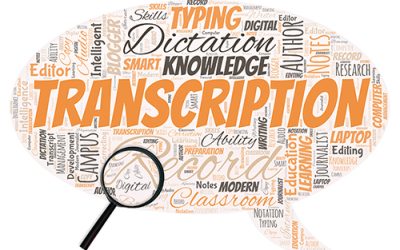The legal industry handles huge volumes of data that needs to recorded and transcribed. Usually, paralegals or court reporters do the task of recording and transcribing legal proceedings and they may utilize legal transcription services to prepare the transcripts. Paralegals are not lawyers but are qualified to perform substantive legal work that requires knowledge of the law and its procedures. A good paralegal should have an eye for detail and an adaptable personality. Paralegals carry out the course of action suggested by the lawyer like interviewing witnesses, doing the necessary research, drafting legal documents, law office administration etc. They must know how to distinguish between good and bad online sources.

Using the right tips to do research can help paralegals find everything they need without paying for access to law sites.
- Understand the key issues surrounding the case before starting the research. This will help you to identify all the relevant parties to the case, the harm that was caused and the order of events. Consider the opposing counsel’s perspective and any counter arguments that can be presented. Research the case, case law for legal remedies and the type of damages in the case.
- Use search engines to collect as much data as possible and dig deeper into the database to get more legal information that is favourable for the case. Using LexisNexis, Westlaw, Bloomberg Law and databases dialled into the courts as well as various levels of the government also helps to get better results without wasting much time. Keep track and bookmark useful websites for easy access. Your state law library website would provide comprehensive links to reliable online resources. Also, save sites that are useful for other paralegal tasks – legal newspapers, local court sites, local court docket and so on.
- Use both primary and secondary sources for legal research: Primary sources provide first-hand information (such as that from lawyers and witnesses involved in the case), whereas secondary sources contain information extracted from those who did research into the subject (such as research papers written by students who wrote about the case, and books/articles that discuss the social and economic issues relating to that case.)
- Social media platforms like Facebook, Twitter etc provide valuable insights into people’s daily routine, business interests, political beliefs, social and professional connections etc.This information can prove to be useful in defending a client or when pursuing a claim.
- Use advanced search options on search engines to save time or look for PPTs, PDFs, spreadsheets, phrases, videos etc to include in your inquiry as these will provide more relevant information. The more specific your search is, the more accurate the results will be.
- Fast- paced information search can be mentally exhausting and there are more chances of missing out on critical data. So, keep it slow and gather all relevant information possible.Taking a break gives a fresh perspective that helps to view the case from different angles.
- Researching a case should go on till the last minute. This will minimize the chances of missing any vital information and ensure that the data is up to date.
- Researching on the internet can be useful but there can be outdated or irrelevant information as well. So, cross-checking every piece of information strengthens the veracity of the data and its application. This will help you get the right results for your case and clients.
- Talk to others in your law firm or professional groups about their favorite tools and best practices.
Here are some government resources paralegals can use to the best effect. These are free to access and provide reliable information on case opinions, statutes, administrative rules and agency information.
- U.S. Supreme Court: Provides interesting links, recent opinions from the Court, case calendars, and oral argument transcripts.
- Congress.gov: This is the website of the Library of Congress and provides free access to federal legislation and related documents.
- U.S. Federal Courts: Provides a handy search function, maps, as well as links to courts’ individual websites.
- U.S. Courts (Federal Judiciary): It provides links to clear explanations of the roles of the different U.S. courts, as well as informative news about the courts’ business.
- United States Code: This site offers free access to the U.S. Code that contains federal statutory laws, published by the Office of the Law Revision Counsel of the U.S. House of Representatives.
- Federal Register: This is published daily and contains rules and regulations of federal executive branch agencies. It contains notices and other associated information. The Federal Register also publishes executive orders and other documents issued by the president. At present, the Federal Register is also available on GPO Access.
The above-mentioned tips are useful for paralegals to approach legal research the right way and get positive outcomes for their case. It will help them develop a list of resources they can rely upon to produce quality results. Any recordings they may collect as research material can be transcribed with the support of transcriptionists from a reliable legal transcription company.



